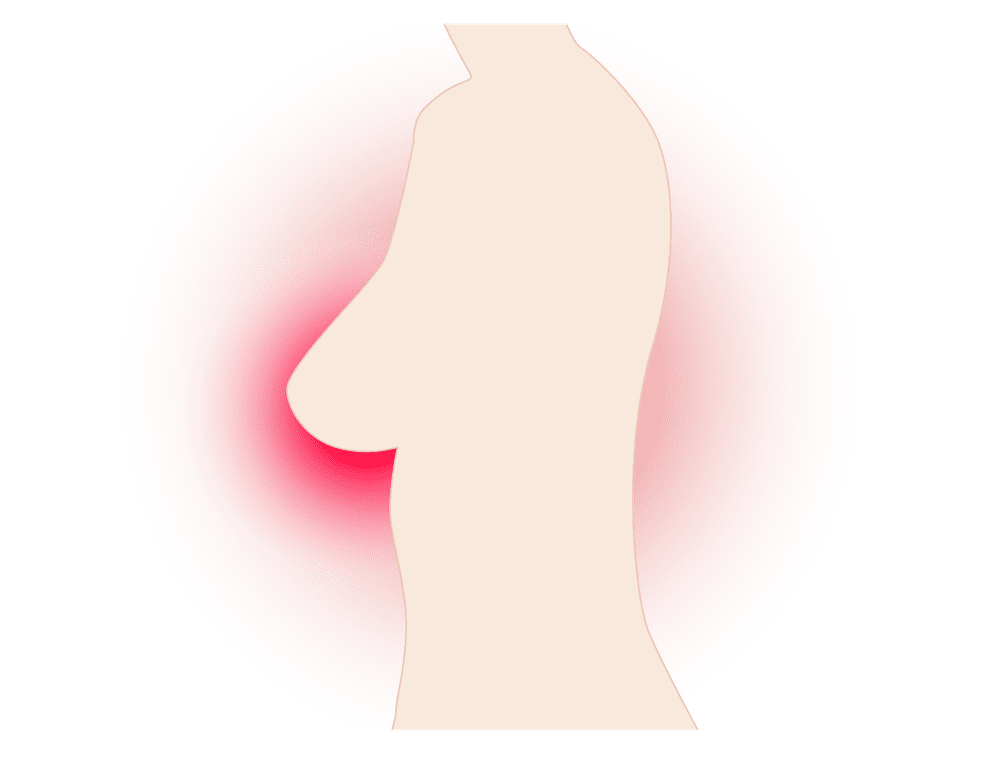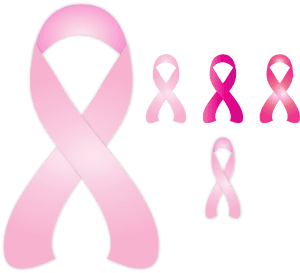When breast cancer cells are biopsied, they are usually tested to determine if the cancer is hormone receptor-positive or hormone receptor-negative. Basically, if the cancer is hormone receptor-positive, estrogen and progesterone can attach to the receptors, causing the cancer to grow more quickly. Estrogen also plays a role in breast development, causing breasts to grow during puberty. Androgens, hormones usually associated with males, inhibit this same growth later in life. Now, researchers from the University of Adelaide are looking into whether androgens could be used as a treatment option for those with estrogen receptor-positive (ER+) breast cancer. Read the study findings on androgens as tumor suppressors in Nature Medicine, or learn more about the study in this Youtube video.
Breast Cancer
Doctors believe that a combination of genetics and environmental factors play a role in breast cancer development. Breast cancer, the 2nd most common cancer in females, forms in breast cells. However, breast cancer is not limited to females and can also affect males. Up to 10% of diagnoses result from BRCA gene mutations. Other risk factors for breast cancer development include age, being female, never having been pregnant, alcohol use, obesity, and radiation exposure. Symptoms and signs include:
- A lump in the breast tissue
- Breast pain, discomfort, or inflammation
- Inverted nipples
- Peeling, crusting, flaking, scaly, or pitted breast skin
- Changes in breast size, shape, or appearance
- Skin dimpling
- Nipple discharge
- Swollen lymph nodes
Learn more about breast cancer.
Androgens
During their research, researchers evaluated androgens as a potential therapy for those with ER+ breast cancer. But what are androgens? As explained by HealthyWomen.org, androgens are a group of hormones, such as testosterone and androstenedione, that play a role in reproduction and male traits. However, the website shares, women also have androgens that:
are produced in the ovaries, adrenal glands and fat cells. In women, androgens play a key role in the hormonal cascade that kick-starts puberty, stimulating hair growth in the pubic and underarm areas[ and in regulating] the function of many organs, including the reproductive tract, bone, kidneys, liver and muscle. [and in In adult women, androgens are necessary for estrogen synthesis and have been shown to play a key role in the prevention of bone loss, as well as sexual desire and satisfaction.
Additionally, in females, androgens play a role in:
- Estrogen synthesis
- Sexual desire
- Bone health
The Research
Currently, endocrine therapy is used for patients with ER+ breast cancer. However, this type of breast cancer is beginning to become treatment-resistant, causing issues with health and mortality. Thus, androgens were explored as an alternate treatment method. Researchers utilized cell-line and patient-derived models to evaluate how to use androgenic drugs or natural androgen to stimulate androgen receptor activity. Through doing this, they determined that androgens were able to express anti-tumor properties. Additionally, researchers believe this form of treatment is more effective than the current standard-of-care.
Because selective androgen receptor activating agents are able to avoid the side effects of natural androgens, such as weight gain, hair loss, and aggression, it also offers a more accessible and beneficial treatment option. Furthermore, researchers believe that this treatment could improve quality of life, bone and muscle health, and happiness.
Researchers hope to begin a a Phase 3 clinical trial to analyze Enobosarm, a type of androgen therapy, in patients with AR+ and ER+ breast cancer before the end of 2021.
Read the press release here.








